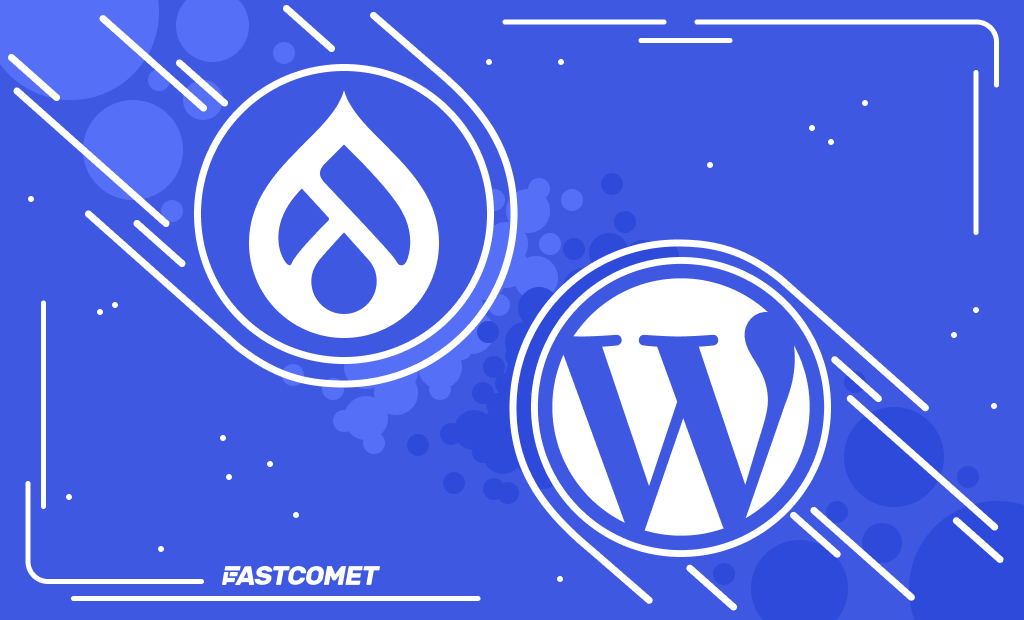
WordPress vs. Drupal: From CMS to Digital Experience Platforms (DXP)
In reality, there is no obvious winner in the never-ending Drupal vs. WordPress dispute. Since WordPress’s transformation from a simple blogging platform to a full-fledged content management system (CMS), there have been supporters on both sides. We love both Drupal and WordPress at FastComet, but in some cases, we believe there is better technology for the task at hand. We completely support both platforms, and our customers often operate with them 50/50 across numerous industries, which gives us great insight into each of their advantages and pitfalls.
If you’re not sure which CMS platform is appropriate for building your website, think about what your goals are for your site and what you’ll need to achieve them.
Here are some factors to keep in mind when comparing Drupal vs. WordPress:
- Consider third-party tools. It’s important to note that a solid CMS may not be able to deliver everything you need for your site on its own. If you need to integrate third-party tools, be sure they are compatible with your selected CMS.
- Visitor engagement. What do you want your site to look like? What would you like the user experience to be? Do you need to restrict access to any content? Are you dealing with multiple kinds of content?
- Team management. How do you want your website to look? What do you want the user experience to be like? Is it necessary to limit access to any content? Are you working with a variety of content?
- Future-proofing. Drupal and WordPress are both rather future-proof options. However, you must also examine your own website and how you intend to expand. Will one provide more scaling opportunities than the other? How international is your customer base, and how straightforward is it to support different countries?
With that out of the way, let’s go into a detailed comparison between the two CMS giants.
Table of Contents:
Digital Experience Platform—The Evolution of CMS
Let’s start with something different. It’s safe to assume that most of us who work with online projects know what a content management system (CMS) is. After all, the concept of a CMS has been around since the early 1990s, when IBM and AOL first experimented with it, and practically every website these days has some form of CMS.
However, digital experience platform (DXP) is a newer term that may be considered an evolution from CMS. It may have begun as another term, but ‘DXP’ appears to be here to stay.
So, what precisely is a digital experience platform? Gartner’s definition of a DXP is as follows:
An integrated set of technologies based on a common platform that provides a broad range of audiences with consistent, secure, and personalized access to information and applications across many digital touchpoints.
In summary, it entails breaking down the silos of different platforms and channels and having one platform at the heart of the entire customer experience, guaranteeing a fully omnichannel consistent approach to managing the touchpoints through which you communicate with customers.
The benefits of using a DXP include:
- Integration with multiple platforms;
- Exceptional performance;
- Automated migration;
- Omnichannel publishing;
- Staging websites;
- The ability to copy your sites;
- Analytics of your site’s performance.
The reason we mention this in a post about WordPress and Drupal is that both platforms are well worthy of carrying the title DXP. Both of those content management systems are comprehensive enough to be considered the ultimate tools, suited perfectly to manage your online projects.
Drupal vs. WordPress: What’s The Difference?
Between the two of them, WordPress and Drupal account for over 64.2% of the CMS market share. However, the more impressive statistic is that 65.1% of that comes from WordPress.
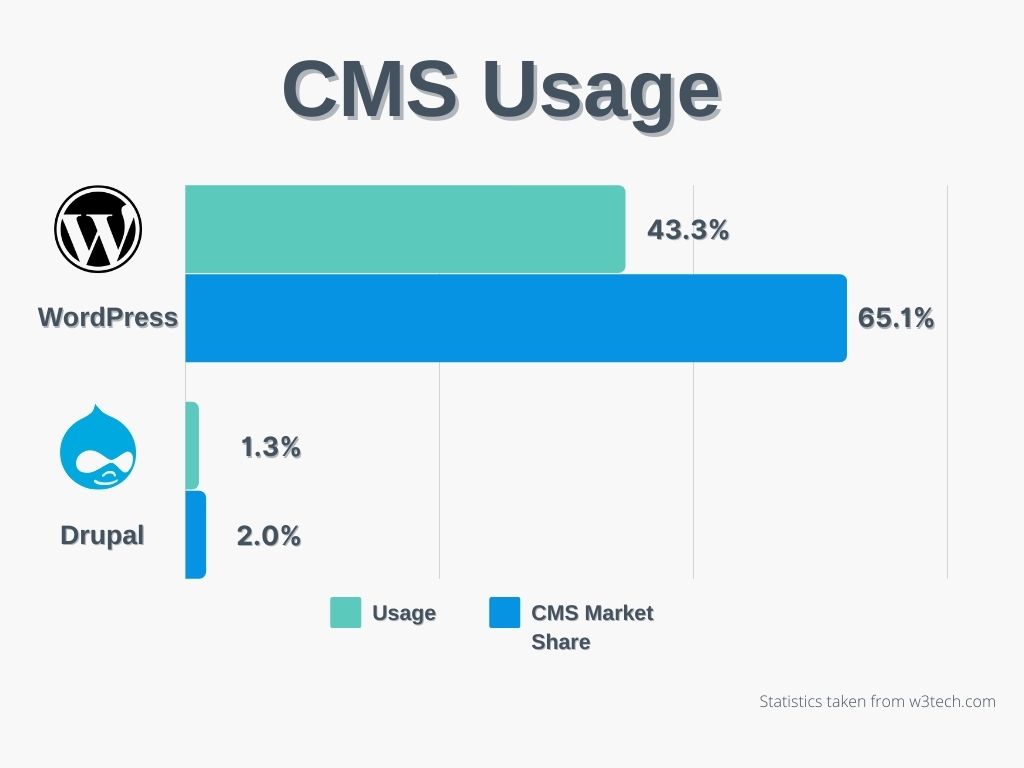
That’s because WordPress is used by more than 40% of websites online. That’s nearly half of the internet.
Drupal was launched three years before WordPress in 2000, but it hasn’t seen the same level of growth. In actuality, Drupal accounts for only 1.3% of the websites tracked by w3techs.com.
It’d be easy to assume that the discrepancy here is enough to crown WordPress the clear king of content management systems.
However, Drupal is not to be underestimated.
Drupal might be overall less prominent online, but it is still a viable contender in the CMS world because it can offer things that WordPress can’t.
Both Drupal and WordPress are:
- Open-source (free to use and develop);
- Written in PHP (this means developers should be able to comfortably switch between the two);
- Optimized to be mobile-friendly;
- Easy to download and install.
So, what are the differences between them?
Drupal vs. WordPress: User Experience
The user interface is possibly the most significant distinction between Drupal and WordPress. Depending on your host provider, both platforms are simple to download and install, although their starting dashboards differ dramatically.
When selecting a CMS, be honest about your level of experience. Consider whether you want to hire a developer or construct it yourself. This will influence which platform is best for you.
WordPress User Experience
The good news is that getting started with WordPress is super easy. You have lots of different options for the best WordPress hosting providers, and most of them are packaged with a quick WordPress installation process.
Once installed, WordPress offers a clean and intuitive dashboard that even beginners are able to understand quite quickly.
It also comes pre-configured, so you can jump straight to creating content.
The idea is that anyone can set up their website using WordPress without needing a background in programming to customize certain features.
Additionally, the Gutenberg update and the plethora of the best WordPress page builders out there make custom-formatting your pages easy even with no experience in web design.
That said, this is also an area where more seasoned developers find WordPress to be limiting.
In order to be accessible to beginners, there’s a certain amount of “hand-holding” that WordPress implements.
Pros will be able to work around these issues quite quickly, but it’s not the platform to choose if you are looking for a blank slate.
Drupal User Experience
In contrast, a common point against Drupal in the Drupal vs WordPress debate is the high barrier of entry.
Unless you are a CMS expert or Drupal developer, Drupal’s dashboard can seem overwhelming. Because Drupal caters to users looking for bespoke solutions, the trade-off tends to be a more complex user experience.
However, there have been improvements between Drupal 7, 8, and now 9 in terms of the user interface, even if progress has been slow.
The point is that the complex admin experience is something Drupal is working on, so there is the expectation that the user experience may still improve.
In addition, like WordPress, downloading and installing Drupal is pretty simple. You can even install Drupal in different “distributions” (Drupal’s terminology for what is essentially a prepackaged bundle), which allows you to start off with a basic website design that you can then customize.
However, unlike WordPress’ preloaded configuration, Drupal tends to make fewer assumptions out of the box, so you need to spend at least a little bit of time working on your site if you want it to resonate with visitors.
That said, the customization part of the user interface is where we can see a big difference in Drupal vs WordPress. For the most part, Drupal offers more customization opportunities but only for intermediate-level coders.
Drupal works out to be a more expensive option for anyone that isn’t comfortable with the fundamentals of programming.
To that end, most people who opt for Drupal as their CMS end up outsourcing to a Drupal developer to build and customize their website.
However, because Drupal’s set-up time is longer and more intensive, agencies or freelance developers end up charging more than you would expect to pay for a WordPress site.
Winner: Tie
When it comes to user experience, there is a complexity-usability tradeoff when comparing Drupal vs WordPress.
For most people, WordPress is the hands-down winner in this category. With an intuitive user dashboard and code-free customization options, anyone with a computer can get a good-looking website online in a few hours.
However, developers or people with at least some basic coding skills might appreciate the flexibility Drupal offers that WordPress doesn’t. At the end of the day, you need to find the balance between a CMS that you’re comfortable with and is able to meet the needs of your business.
Drupal vs. WordPress: Security
The truth is, any open-source platform is going to have its fair share of security issues. But both WordPress and Drupal are at the basic level equally “secure” CMS.
When it comes to assessing trends in their overall security, issues like user habits and third-party tools are where they start to differ.
WordPress Security
Considering that whitehouse.gov and other government websites use WordPress (fun fact, they used to use Drupal), some credit needs to be afforded to the platform in terms of its security reputation.
It’s true that WordPress is the most commonly hacked CMS, but since it’s also the most common CMS period, that’s to be expected.
Simply put, WordPress has more users and thus presents a bigger target.
At the end of the day, security problems are not so much about the WordPress core but more the fault of typical user habits.
In addition, when you compare Drupal vs. WordPress, you’ll find that a WordPress website is more likely to have third-party plugins. These plugins also contribute to your site’s vulnerability.
In fact, when you download and install WordPress, it comes preloaded with a selection of themes and plugins that you may not actually need or use.
It’s important to always go through and remove any plugins or themes that aren’t necessary for your website. Not only will they reduce your site’s response rate, but they will leave you vulnerable to security attacks.
Third-party Plugin Threats
Since WordPress is so easy to use, most users have little to no background in programming or things like web security.
The result is that user habits fail to consider things like security, and third-party plugin installations leave websites more vulnerable to security threats. This is because plugins can leave a “backdoor” open to your site, which allows hackers to modify your site or steal information.
Plugins leave holes in three key ways:
- No longer supported (i.e. the developer has stopped working on it). Therefore, when WordPress updates, the plugin is no longer compatible;
- The plugin has a vulnerability that the developer is unaware of or unable to solve;
- A security patch is released, but the user fails to update the plugin.
Contact Form 7, and Yoast SEO have both updated their plugins to account for several vulnerabilities that left users exposed. However, SEO spam infections continue to be the most common security threat for CMS users.
Regardless of what CMS you decide to use, always make sure you keep your CMS and plugins up to date. Turning on automatic updates or regularly checking that all your plugins are up to date can go a long way in keeping your site secure.
Your choice of a web hosting provider is critical. If you are concerned about security, you may choose a web hosting service with enhanced security measures. The proper service can reduce your workload by handling several technical chores. At FastComet, we ensure that your WordPress and Drupal websites are always properly backed up and optimized for performance. These features allow you to concentrate on what is important: expanding your business idea.
The best part is that if you want to give Drupal or WordPress a go, both of them can be set up in just a few clicks on all our website hosting plans and see for yourself which suits your needs/meets your expectations.
Drupal Security
Drupal actually has a great reputation for being an ultra-secure CMS. For one, they have a volunteer security team that monitors security issues.
They also have a standard set of procedures and strict policies for handling security problems. For that reason, sites with sensitive and complex data, such as NASA, rely on Drupal.
Overall, things like database encryption and other complex cyber security solutions are easier to implement and better handled by Drupal in comparison to other CMS.
In addition, Drupal also tends to be more transparent about their security and any possible issues by publishing regular detailed security reports which are easily accessible.
Nonetheless, Drupal also has some advantages in the security department over WordPress that aren’t really down to the CMS.
A large part of Drupal’s reputation as a secure CMS comes from the fact that Drupal users tend to be more web-savvy and not make the same mistakes as beginner WordPress users.
Drupal also has an overall smaller market share as well as fewer themes and plugins. Because there are fewer Drupal sites online, they present a less enticing target for hackers.
You can also look for a Drupal distribution, like Guardr to help you keep your site ultra-secure. Guardr comes with different Drupal modules preloaded and advanced settings that make it easy to maintain a security standard.
Winner: Tie
It’s difficult to discern a clear winner in this category as both CMSs are arguably equally secure.
The major issue with security for either platform comes down to webmaster oversight.
At the core level, there’s not much difference between Drupal vs WordPress. Problems are introduced once you start to add additional customizations.
That said, for a developer, Drupal would be the more secure option because of the greater opportunity for security customization.
Drupal vs. WordPress: Customization
Designing and customizing a website, so it’s unique to your business is important for:
- Brand awareness;
- Visitor engagement;
- Functionality;
Luckily, both WordPress and Drupal are customizable, either by writing your own code or using themes and plugins.
Drupal modules are the same thing as WordPress plugins. They just use different terminology.
WordPress Customization
Boasting more than 50,000+ plugins in the official directory and more than 11,000+ free and premium themes, WordPress is pretty much the king when it comes to easy, no-code customization.
Plus, downloading and installing themes and plugins is super easy on WordPress. There’s no need to go off-site. You can preview and download directly from the WordPress directory, accessible from your dashboard.
Additionally, WordPress has lots of external plugins that can help you with things like on-page SEO.
Plugins like All in One SEO for WordPress and Yoast SEO can help get your website to rank better on Google by guiding you through SEO best practices.
Internal linking is an important part of SEO. Luckily, WordPress has you covered for that too.
WordPress is also a great option for budding entrepreneurs or small businesses, thanks to its powerful eCommerce plugin. WooCommerce makes it easy to create your own online shop or even start your own marketplace website using WordPress.
Drupal Customization
Although Drupal has been criticized for its steep learning curve, the truth is once you’ve mastered it, the possibilities are endless. For that reason, Drupal sites tend to be more unique.
While WordPress offers a more out-of-the-box setup experience, Drupal requires the developer to be a bit more involved. You can still find predesigned themes online, but fitting a theme into your site is less straightforward.
Furthermore, finding a theme or module to use with your Drupal website is not quite as easy as it is with WordPress. You can browse available options in Drupal’s own directory, but you’ll have to go off-site to do it.
Once you’ve found what you’re looking for you, have to download the developer’s ZIP file and then upload it to your own website.
Nevertheless, Drupal does still support an extensive amount of modules/plugins (though about 10,000 less than WordPress). Modules like Drupal SEO Checklist will provide similar feedback to WordPress SEO plugins.
You’ll also still be able to meet all of your eCommerce needs on Drupal, thanks to multiple integration options and eCommerce modules.
You can seamlessly integrate your Drupal website with Shopify or your Amazon store. Alternatively, take advantage of powerful eCommerce solutions like Drupal Commerce, Ubercart, or eCommerce Invoice.
The main difference is that, once again, you will need to understand some programming in order to run your Drupal website successfully. The flip side of that is that your website will be more bespoke than a WordPress solution is likely to be.
Winner: Drupal
In terms of customization, when considering Drupal vs. WordPress, you’re basically comparing opportunities for customization with how easy they are to implement.
Technically, Drupal is more customizable than WordPress. However, those modifications are more time-intensive and will likely require you to outsource to a Drupal developer.
On the other hand, WordPress customization can be limited but is straightforward, even for beginners.
Drupal vs. WordPress: Community
WordPress Community
The fact that WordPress runs so much of the internet translates into a massive online community. Plus, the WordPress community is made up of developers from all different backgrounds and skill levels, so if you run into problems, it’s fairly easy to find help.
Additionally, you’ll find lots of WordPress experts on freelance sites like Upwork and Fiverr, so finding a professional to help you out with a quick problem is pretty easy too.
Drupal Community
With just over a million users, Drupal’s global community is significantly smaller. Add to that the fact that most people using Drupal are developers, and the problems and solutions discussed online are often complex and specific.
Unfortunately, this means they won’t be much help to just casual users.
Not being able to find a solution online could make you more inclined to look for professional help, but even there, Drupal can be constraining.
Because the CMS is less popular than WordPress, there are fewer developers out there, meaning they get to charge more for their services.
Winner: WordPress
Community is definitely a category where WordPress wins outright. There is no substitute for the range of different skill levels or the global reach of the WordPress community. With WordPress, you can easily find help and other like-minded developers.
Drupal vs. WordPress: Which CMS You Should Choose
When it comes to Drupal vs. WordPress, it’s really about choosing the right tool for the job. You wouldn’t use a hammer to screw something together.
Drupal Use Cases
- Strict security needs. While the WordPress core is still very secure, once you start customizing your site, WordPress opens up to a host of vulnerabilities which means Drupal tends to be the more secure option.
- Additionally, Drupal is better at handling PCI compliance (payment card industry data security standards) requirements.
- Large amounts of data or multiple content types. Thanks to Drupal’s efficient taxonomy system, working with multiple content types is much easier than it is with WordPress.
- Under your Structure tab on your dashboard, you’ll find an option to add as many content types as you need. If you’re dealing with complex content or need to stipulate multiple levels of access, Drupal is better able to handle more sophisticated scenarios.
- There is a diverse team working on the back end. Unlike WordPress, which only allows for five basic user roles, Drupal has advanced user permissions for unlimited roles. This makes it the better option if you need to grant access to multiple users with different permissions.
- Built-in multi-language support. While WordPress does have support for multiple languages, it isn’t built-in like Drupal. If you’re working on a global project, Drupal might be a better option.
- Bespoke website needs. Because Drupal is overall more flexible than WordPress, it’s the better option for deep customization to create a bespoke website.
- Creating a web application. A web application tends to be more complex as it has to deal with integrations and back-end logic. Generally, Drupal is much better at handling this because it’s more bare-bones than WordPress and easier to configure from scratch.
- Advanced configuration management system. Drupal allows developers to push updates to a live website thanks to strict version control.
- The configuration management system means you can keep your site live without worrying about possible errors. Users that are dealing with large, complex sites will find this feature a particular time-saver.
WordPress Use Cases
- Everything else. If you don’t specifically need to use Drupal for one reason or another, go with WordPress. Overall it is the easier, more cost-effective, and more efficient way to get your website online.
- Great for beginners (but suitable for all skill levels). Anyone with no background in coding will likely find themselves frustrated or lost trying to navigate Drupal. For that reason, most people that need to use Drupal tend to outsource. Fortunately, WordPress is beginner-friendly while still offering lots of opportunities for experienced developers to get their hands dirty coding.
- A multitude of free themes and plugins. In line with being beginner-friendly, WordPress offers a huge variety of completely free themes to customize your website. Additionally, you’ll find a library of plugins that can work with your site to meet all of your needs.
Conclusion
Ultimately, choosing the best tool for the job comes down to:
- Ease of use;
- Customization capabilities (flexibility);
- Overall cost.
WordPress is definitely the best option if you’re a small business (eCommerce, startup, NGO, etc.). The platform can satisfy all of your business demands, and you can get up and operate quickly.
Furthermore, it is simple and inexpensive to acquire free or professional WordPress assistance.
Drupal, on the other hand, has some advantages that WordPress does not. As a result, depending on your business requirements, it may be the superior solution.
Drupal is likely to perform better for websites that require complicated organizational hierarchies or broad customization options. However, unless you’re a developer, you should be prepared to employ one to get your site where you want it.
Still not sure which one’s right for you? Use the comment section if you want to discuss.

The latest tips and news from the industry straight to your inbox!
Join 30,000+ subscribers for exclusive access to our monthly newsletter with insider cloud, hosting and WordPress tips!
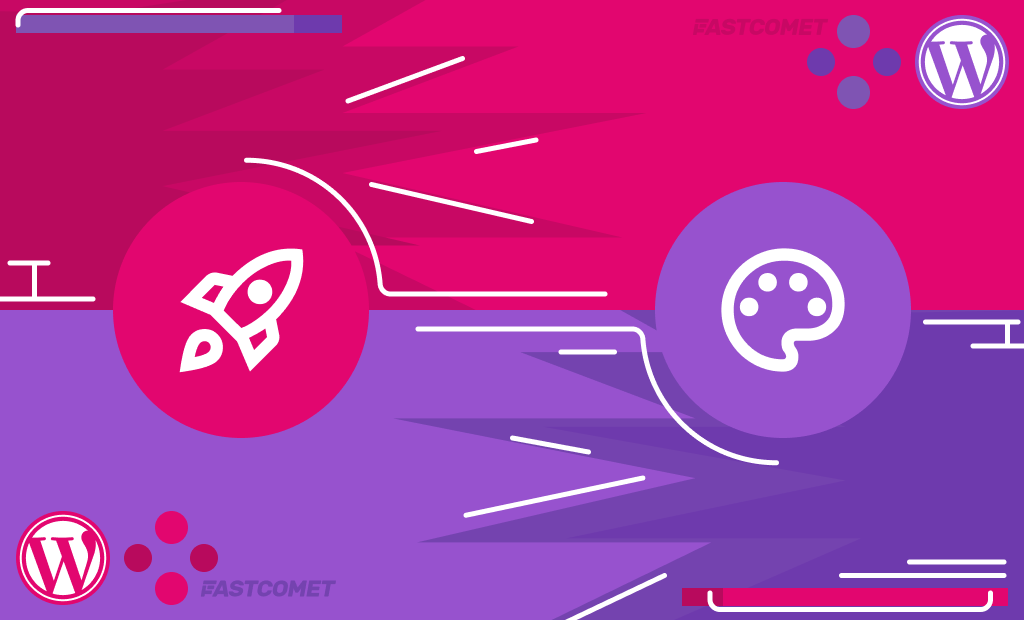
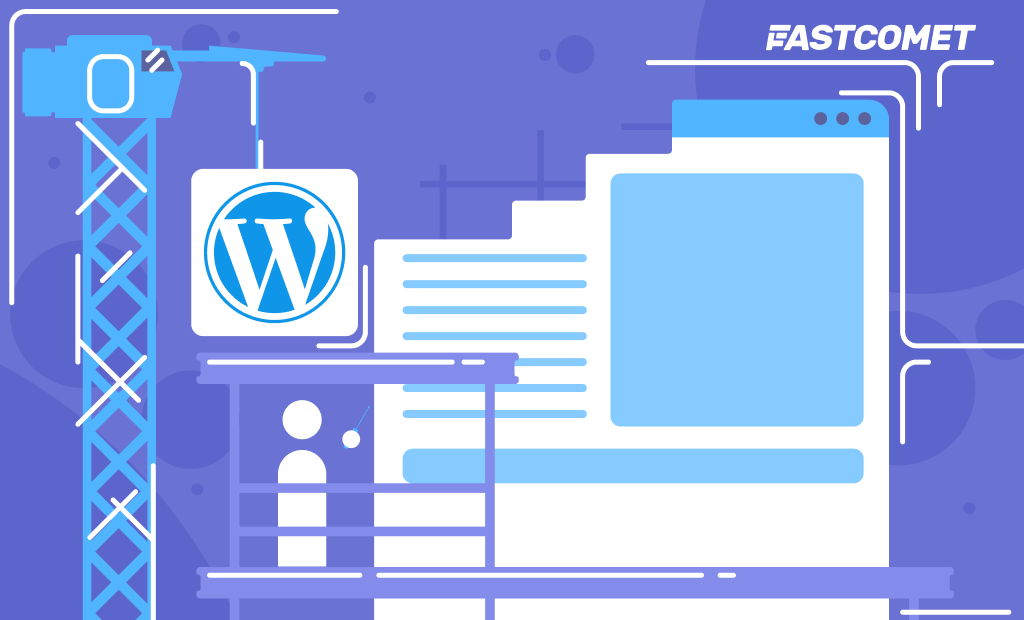
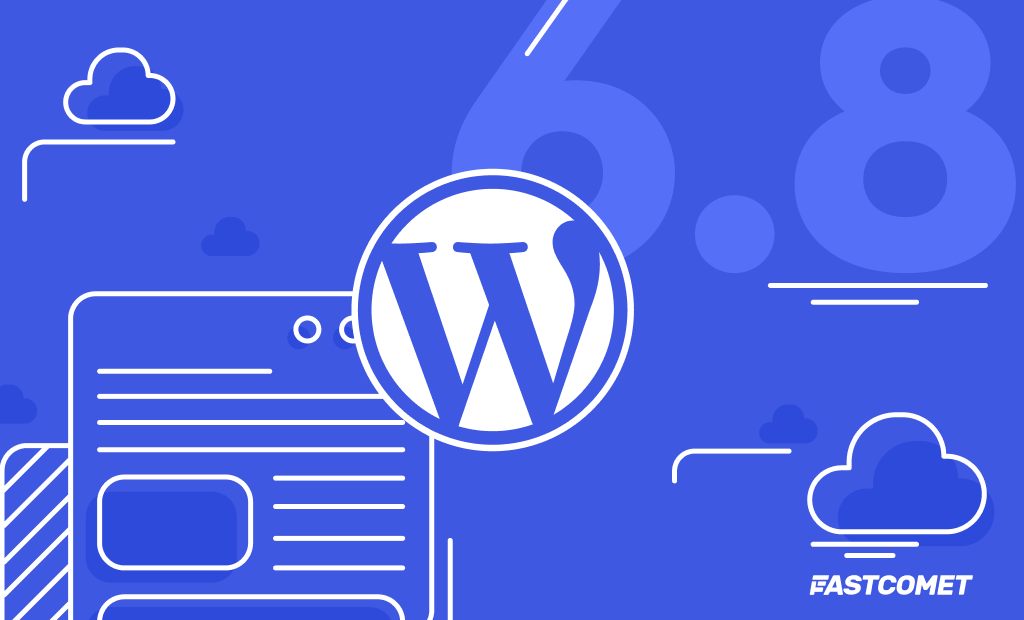
Comments (2)
I’ve been a FastComet customer for a number of years now. I came on because of its support of the CMSMS platform, under which you currently host my website. I want to upgrade and update my site and wondering if I should stay with CMSMS or switch to another platform such as Word Press. CMSMS appears to be declining in the eyes of developers and the number that employ the platform. I enjoyed your article comparing Drupal vs Word Press. Any thoughts, recommendations, or direction you care to offer me?
Hello, Jeff! We’re always happy to hear from a satisfied customer. Thank you for the kind words!
We can see what your concerns about CMSMS are, and you are on the right path by considering a transfer to a more reliable CMS. Since you ask for our suggestion, here it is—the best choice in your case is to migrate your website to WordPress. Conveniently, we found a quick guide for that type of transfer. It will help you do everything almost automatically and as quickly as possible.
About WordPress—it’s quite intuitive, and most of the things you will have to do while managing your website are straightforward, especially with Full Site Editing that came with WordPress 5.8 and keeps going strong with each update. While being easy to use, it’s also comprehensive, which is the best combination you can ask for. It’s not by accident that WordPress is the most preferred CMS globally. It’s constantly being worked on by developers all over the world. Furthermore, there are countless WordPress guides and tutorials on how to manage the project you are working on.
PS: While working on this reply, we checked out your website and noticed it doesn’t have an issued SSL certificate. Not to worry, you can turn to our technical support team via a support ticket, and they will assist you in making the connection to your website secure. Here are some of the advantages an active SSL Certificate provides:
— Improved Website Performance;
— Better Search Engine Ranking;
— Improved Security;
— Establish Trust with Visitors;
— Regulatory Requirements Compliment.
We hope this information helps you with your decision! Don’t hesitate to use the Live Chat and ask for anything hosting-related at any time—we work 24/7 for your convenience.